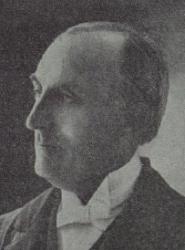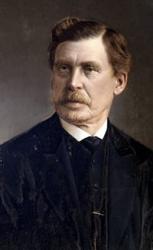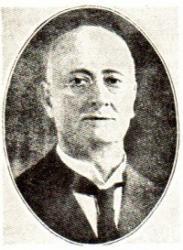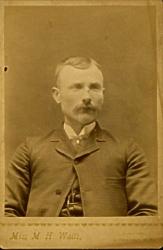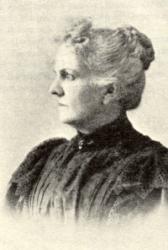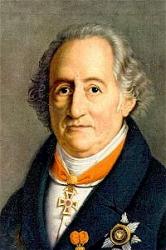
1749 - 1832 Person Name: J. W. Von Goethe Hymnal Number: 312 Author of "Purer Yet And Purer" in Greater Christian Hymns Goethe, Johann Wolfgang von, son of Johann Caspar Goethe, a lawyer at Frankfurt-am-Main; was born at Frankfurt Aug. 28,1749, and died at Weimar, March 22, 1832. The greatest German poet of his day, and one of the most famous literary men of his own or any age, his sympathies were Classical rather than distinctively Christian; and as he himself said (Conversations with Eckerman, January 4, 1827), he wrote no poems suited for use in public worship.
A few pieces, principally from his well-known dramatic poem of Faust (pt. i. 1808; pt. ii. pub. posthumously, 1832), are found under his name in one or two Unitarian hymn-books. Good translations of both parts of Faust have been published by Dr. John Anster, Bayard Taylor, Sir Theodore Martin, and others; while a very large number of other persons have published translations of the first part. No attempt has accordingly been made to notice any translations except those in the hymn-books.
i. From Faust, pt. i., 1808.
i. Christ ist erttanden! Freude dem Sterbliche. Easter. The chorus of angels on Easter Day. Translated as “Christ has arisen! Joy to our buried Head," by Dr. F. H. Hedge, in his Supplement to Hymns for the Church of Christ, Boston, U.S., 1853, No. 836. A free version is also noted under A. C. Cox, No. 4.
ii. Die Sonne tönt nach alter Weise. Praise. The Song of the three Archangels in the Prologue in Heaven. Translated as "The sun is still for ever sounding," by Dr. F. H. Hedge, as above, 1853, No. 190.
iii. Verlassen nab ich Feld und Auen. [Evening]. Faust's Soliloquy on entering his study with the dog, Translated as "O'er silent field and lonely lawn," as No. 21 in W. J. Fox's Hymns & Anthems, 1841, repeated in English and American Unitarian collections.
ii. Miscellaneous.
iv. Des Maurers Wandeln. Written for the Freemasons' Lodge at Weimar, of which he became a member in 1780, and included in his Werke, 1828, vol. iii. p. 61, entitled "Symbolum." Translated as "The Mason’s ways are A type of Existence," by T. Carlyle, in his Past and Present, 1843, p. 318. Included,beginning "The future hides in it" (st. ii.), as No. 854 in Dr. Hedge's Collection, 1853, as above.
Two pieces are also found in collections under his name, viz.:—
1. Without haste! without rest, in Hymns of the Ages, Boston, U.S., 3rd Ser., 1865, p. 76, and repeated as "Without haste and without rest," in Stopford Brooke's Christian Hymns, 1881, &c. It is suggested by " Wie das Gestern Ohne Hast, Aber Ohne Hast, Drehe sich jeder, Urn die eigne Last," in Goethe's Zahme Xenien, 2nd Ser., 1823 (Werke, 1828, iii. p. 245).
2. Rest is not quitting The busy career. [Rest]| This is part of a piece beginning "Sweet is the pleasure Itself cannot spoil." No. 853 in Dr. Hedge's Collection, 1853, as above, marked as by " J. S. Dwight." There does not appear to be any equivalent poem in Goethe's Werke. [Rev. James Mearns, M.A.]
--John Julian, Dictionary of Hymnology, (1907)
===========================
Goethe, J. W. von, p. 441, i. The Exeter Unitarian Hymns, Psalms and Anthems, of 1863 and 1884, contains the several additional hymns from Goethe, the translations in each case being by the Rev. T. W. Chignell. Some of the versions are very free, and the distinctively Christian character of the translations is only very faintly present in the originals. [Rev. James Mearns, M.A.]
--John Julian, Dictionary of Hymnology, Appendix, Part II (1907)
J. W. von Goethe


 My Starred Hymns
My Starred Hymns